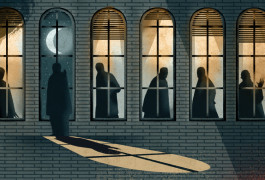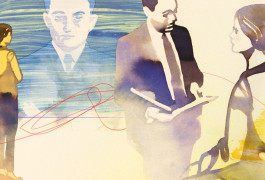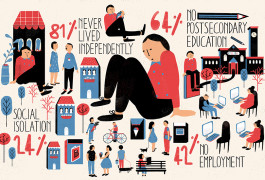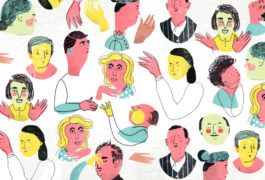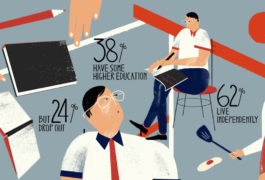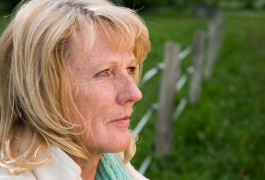Spectrum: Autism Research News
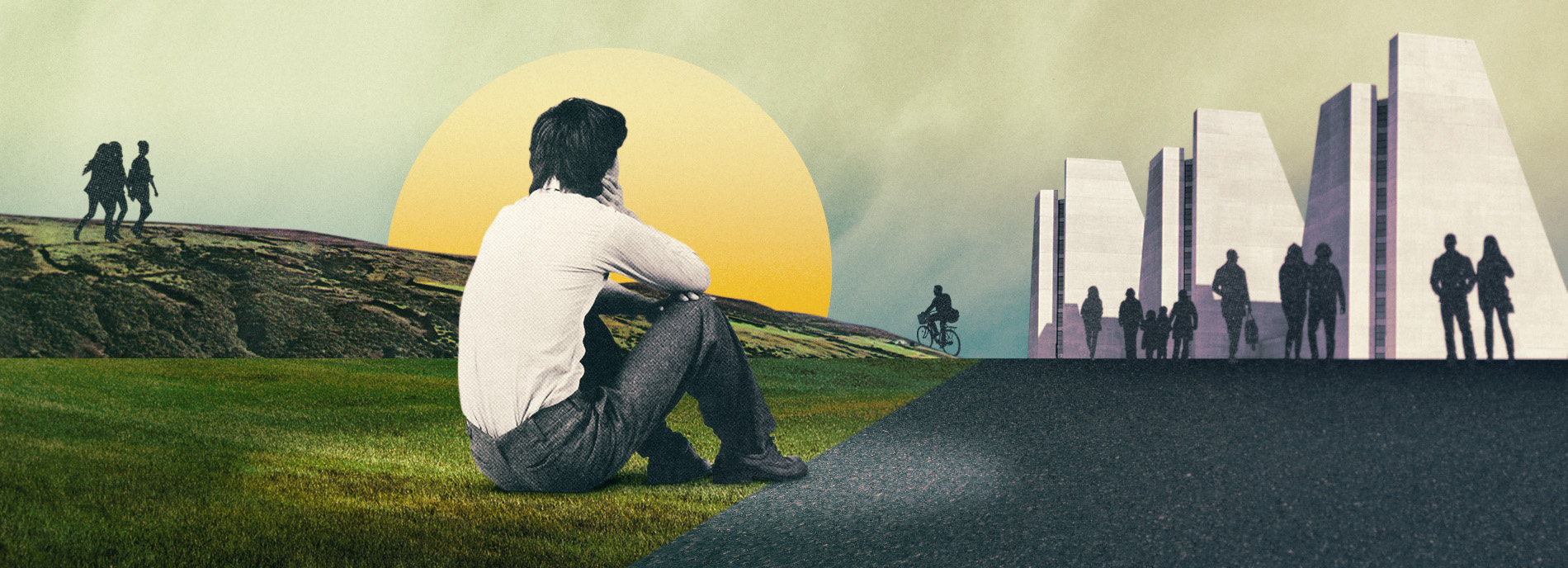
Untold stories of adults with autism
Most of the conversation about autism — whether about services or science — concerns children with the condition. But what happens when children with autism grow up? That’s the focus of this special report, “Untold stories of adults with autism.”
The report covers issues that affect a majority of adults with the condition — as well as issues that touch just a few. We made an effort to feature the perspectives not just of scientists, but of the true experts: people with autism.
Many children fall off a ‘social cliff’ after leaving high school and becoming adults, as journalist Deborah Rudacille describes in “The twenty-something free fall.” But a few manage to do well. Those who fare best are the ones who participated in organized activities as students, writes Julie Lounds Taylor.
Some of the social difficulties people with autism face stem from lack of eye contact. Craig Erickson and Rebecca Shaffer explore whether adults with autism are uninterested in others’ eyes or actively avoid them. The answer may help shape therapies for the condition.
Artist Leironica Hawkins, who has autism, depicts her occasional aversion to eye contact in a series of evocative cartoons. Another artist on the spectrum, Nicole Appel, creates unconventional portraits that have appeared in prominent art shows.
For Brooks Wolfner, a young man on the spectrum, a job-training program has led to stable employment and an entrée to a new social life. Brooks lives with family, but when his grandmother is in Florida, he is by himself, adhering to a strict schedule that gets him to work by 6 a.m.
Housing can be more complicated for others on the spectrum. And states are increasingly refusing to pay for disabled adults to live in large residential communities designed for them. Amy S.F. Lutz reports that these communities are a particularly good option for those who need extensive support.
For most people with autism, isolation is unwelcome. Liz Pellicano and Felicity Sedgewick describe the difficulties women with autism have making friends because they struggle to interpret the subtle social cues that form the glue of female friendships.
People with autism may similarly find romantic relationships challenging. In “Sex and other foreign words,” reporter Ann Griswold describes the complications that make sex and romance difficult for those on the spectrum, and the sweet success many have found.
This is the first generation of people with autism who have a diagnosis and are choosing to become parents. Although raising children poses its own set of problems for any parent, many are finding “the unexpected plus of parenting with autism.”
One pitfall of parenting on the spectrum can be an inability to respond appropriately to a child’s emotions. Nathan Caruna and Jon Brock discuss technology that brings a better understanding of social cognition in adults with autism, and the promise of virtual reality for helping these individuals hone social skills.
Adults with autism often have multiple health conditions. At a few healthcare centers designed for this population, specialists coordinate their care to consider all of an individual’s health issues before deciding on treatment.
In other cases, the healthcare of adults with autism is compromised by a late-in-life diagnosis. Judith Miller suggests potential ways to uncover cases of autism that go undiagnosed in community health centers.
You can hear some of these voices in our Spectrum Stories podcast (below). Articles from our archives round out this special report, which we hope captures some of the experience of being an adult with autism.
[powerpress]
Featured Articles

Sex and other foreign words
People with autism fall in love. They marry. They even (gasp) have sex. Yet these deeply human needs have mostly gone ignored by scientists.
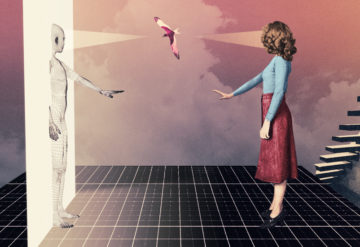
Virtual reality yields clues to social difficulties in autism
Assessing social ability in adults with autism requires controlled tests involving real-time social interactions. Virtual reality makes this possible.

Eye contact is aversive for some adults with autism
The reasons some people with autism don’t make eye contact may differ between childhood and adulthood.
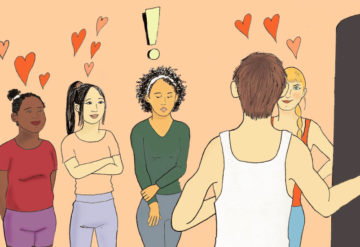
Do the eyes have it? Some adults with autism say ‘no’
Artist Leironica Hawkins feels comfortable making eye contact with only some people.
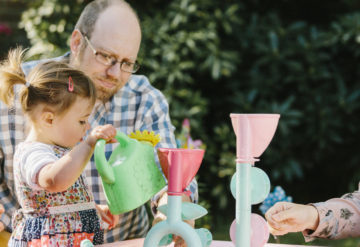
The unexpected plus of parenting with autism
Having autism as a parent might seem impossibly challenging. But a generation of parents with the condition is showing that it can be an advantage — even when their child does not share the diagnosis.
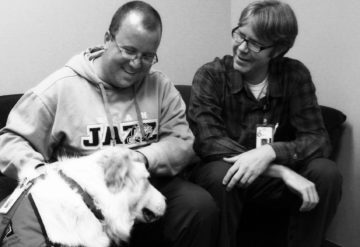
Specialty clinics offer complete care for adults with autism
Many adults with autism receive fragmented healthcare. Specialized clinics and personalized ‘tool kits’ are filling in the gaps.
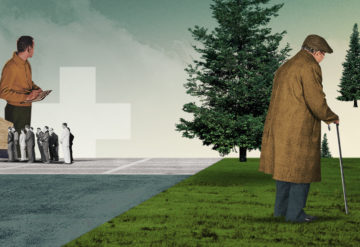
With support, community doctors could detect adults with autism
Community mental health clinics, which serve millions of Americans, can help identify adults with undiagnosed autism — and change their lives for the better.
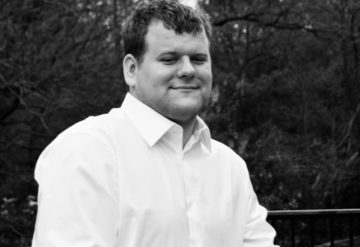
My secret to happiness: Lessons from an adult with autism
When I was young, I didn’t know I was different from other people. I’ve since learned who I am, about my autism and how I can overcome the challenges of my condition.

For people with autism, path to friendship may start in high school
Not all individuals with autism show signs of falling off a social cliff after high school; those who participated in organized sports and clubs fare the best.
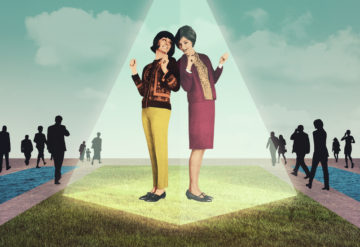
Friendships pose unique challenges for women on the spectrum
Women with autism value friendships as much as their neurotypical peers do, but they often have difficulty forming and maintaining them.
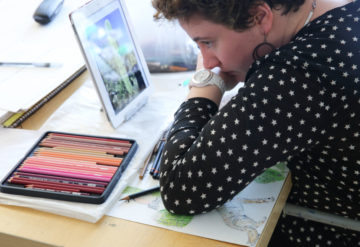
Artist with autism captures personalities on paper
Nicole Appel, a young woman with autism, draws — from memory — detailed portraits of people she knows.
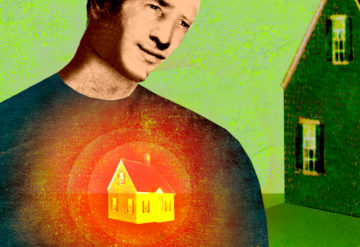
Adults with disabilities deserve right to choose where to live
The idea that one residential model is appropriate for the entire spectrum of intellectual and developmental disability is patently absurd.

